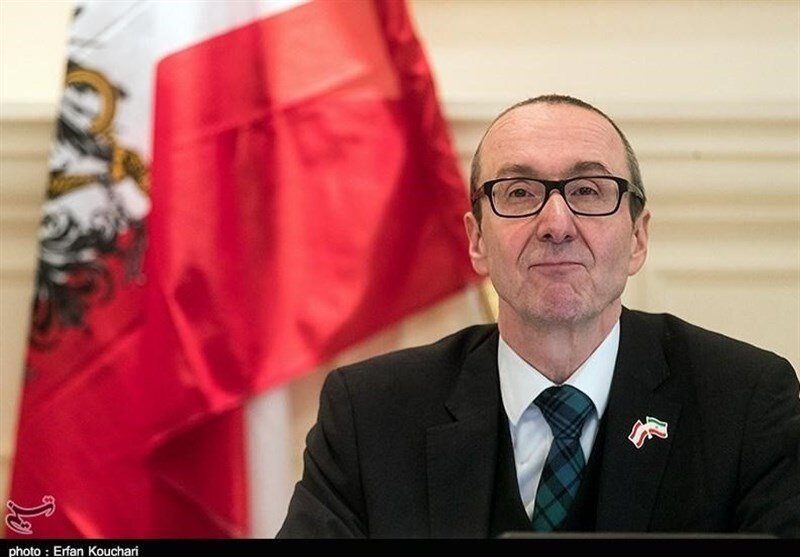Austria seeks to preserve nuclear deal: diplomat

TEHRAN - Stefan Scholz, the Austrian ambassador to Tehran, said on Wednesday that Austria seeks to preserve the 2015 nuclear deal, formally known as the JCPOA.
“The Austrian government is interested in preserving the JCPOA and we believe that Europeans must fulfil their promises and uphold Iran’s economic benefits,” he said during a meeting with members of Sanandaj’s city council.
He noted that Austria, as a member of the European Union, is making efforts to save the JCPOA.
Austria and Geneva hosted the nuclear talks between Iran, the 5+1 group, and the European Union, which led to the conclusion of the JCPOA in July 2015.
Josep Borrell, the new EU foreign policy chief, said on Monday that the signatories to the nuclear deal should adopt a united stance to preserve the deal.
He also said on Saturday that “collective responsibility” is needed to stop the JCPOA from breaking apart.
“We have a collective responsibility to preserve #IranDeal,” Borrell tweeted.
A meeting of the JCPOA Joint Commission was held in Vienna on December 6.
Borrell added, “Following the Joint Commission, as a coordinator, I support the call for full implementation & to reverse the recent negative trend.”
U.S. President Donald Trump quit the nuclear deal in May 2018 and introduced the harshest ever sanctions on Iran as part of his administration’s “maximum pressure” campaign against Iran.
Under the JCPOA, Iran promised to put limits on its nuclear activities in exchange for termination of economic and financial sanctions.
Britain, France, Germany, Russia, China, and Iran have been trying to salvage the pact. However, Europeans’ efforts to protect trade with Iran against the U.S. sanctions have yielded nothing concrete so far.
On May 8, exactly one year after the U.S. abandoned the deal, Tehran announced that its “strategic patience” is over and began to partially reduce its commitments to the agreement at bi-monthly intervals.
In the first stage, Iran announced that it will not limit its stockpile of the nuclear fuel to 300 kilograms allowed under the deal. On that date (May 8) Iran’s Supreme National Security Council (SNSC) said if the remaining parties to the JCPOA, especially Europeans, devise a mechanism to protect Iran from the sanctions’ effect in the two-month deadline it will reverse its decision.
But since European parties missed the deadline, on July 7 Iran announced that it has started enriching uranium to a higher purity than the 3.67%, thereby starting the second step.
Again, as Europe missed the second 60-day deadline, Iran moved to take the third step, removing a ban on nuclear research and development (R&D).
In the latest step, which started on November 6, Iran began injecting uranium gas into 1,044 centrifuges at the Fordow nuclear site. It was done at the presence of inspectors from the International Atomic Energy Agency (IAEA).
NA/PA
Leave a Comment